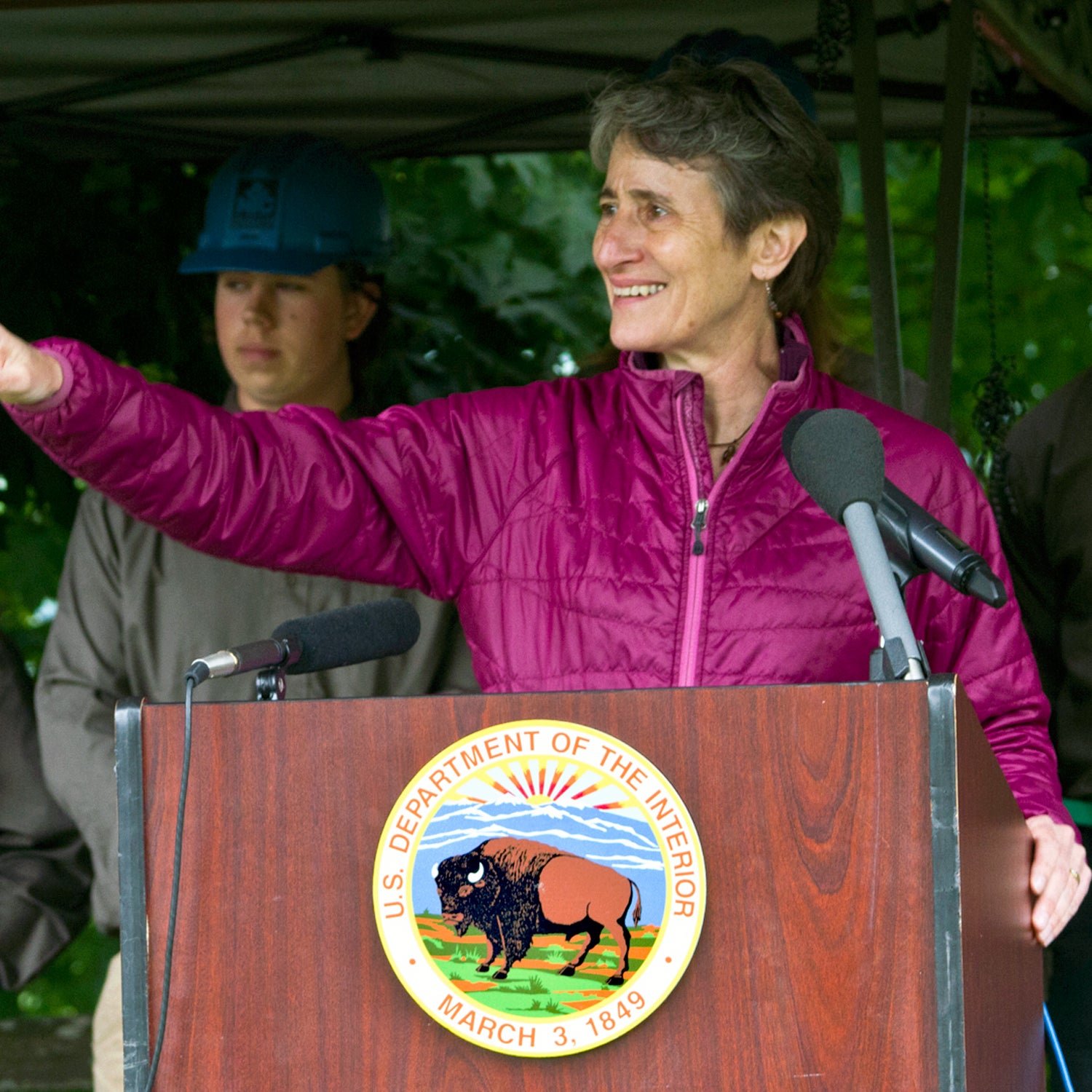At a on Thursday afternoon in Washington, DC, Department of the Interior Secretary Sally Jewell discussed the growing financial importance of wild places in the United States and underscored the importance of the government evaluating growth in the outdoor recreation industry.
The industry faces challenges including climate change, rampant wildlife trafficking, competition from the oil and gas industry, states struggling for control of public lands, and a need for improvement in park access for all Americans, Jewell said.
Jewell also called for more “formal reporting on the value of public lands.” The Outdoor Industry Association has consumer spending associated with public lands at $646 billion—twice that of the pharmaceutical industry—and says the industry supports 6.1 million jobs. Jewell urged people with a stake in the outdoor industry—hunters, anglers, commercial fishermen, hikers, and National Park employees—to make their voices heard.
“Those voices are very important to offset the very loud voices of the extractive industry,” Jewell said.
Jewell also highlighted the need to continue allowing fossil fuel development on some federal lands, saying, “We recognize we are a nation that still needs fossil fuels.” But, she added, “We need to be more thoughtful of how we balance development with conservation. And it needs to be on the landscape level.” That is, conservation must not end right at a park’s border, and it should account for animal migration patterns and ecosystem-wide impacts.
Washington Post correspondent Jim Tankersley, who moderated the forum, asked Jewell how she might balance jobs the outdoor industry creates with energy industry jobs foregone. She stressed the diversity and large scope of the outdoor industry. It even extends to areas like agriculture and ranching, she said. “These are legitimate jobs.”
“If you value public lands, you have to be at the table,” Jewell said. “Or else you’re on the menu.”


